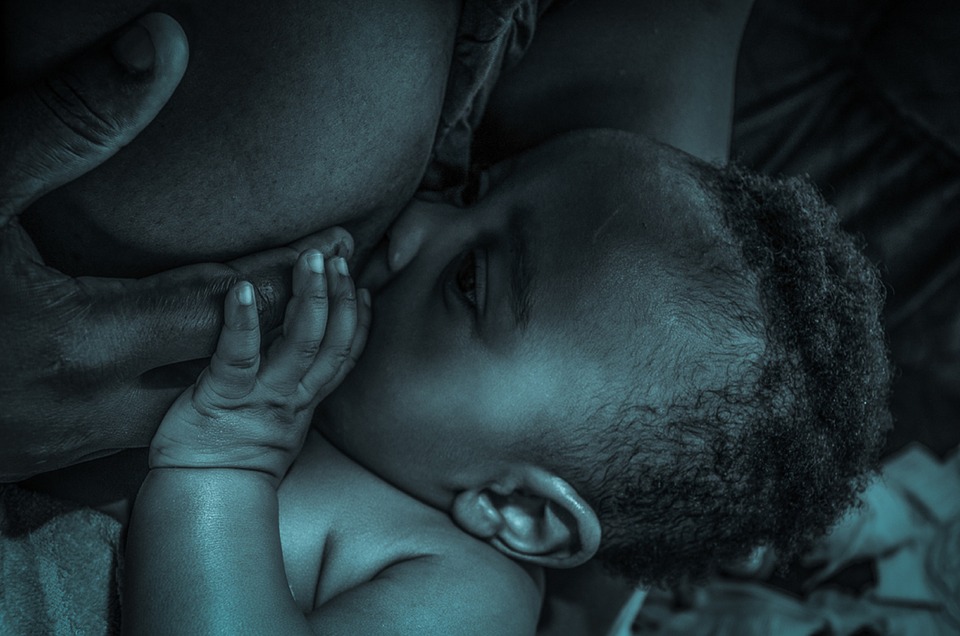You might be asking yourself how breastfeeding could be an act of resistance? A political act. A statement. You might be wondering how the simple act of feeding your baby could be anything beyond providing nutrition.
The Statistics with Breastfeeding Rates
Breastfeeding initiation rates are significantly lower among black infants as compared to other races. About 61 percent of black women initiate breastfeeding, as compared to 90 percent of Latinas and 78 percent of white women. On average, if a successful breastfeeding relationship is established, white and Latina women continue to nurse for about 17 weeks, while black women continue for about six weeks. At the crucial six month mark – the amount of time recommended to exclusively breastfeed by the American Academy of Pediatrics – just 35 percent of black women are still breastfeeding, while about 50 percent of Latinas and white woman continue to nurse.
Interestingly, studies also show that black mothers are even less likely to intend to breastfeed when compared with their white and Latina counterparts. They are even less likely to have a maternal history of breastfeeding.
Why?
History of Breastfeeding for Black Women
During slavery, some enslaved black women were forced to feed and raise the children of their masters, including the requirement to “wet nurse” their masters’ children. In fact, the masters’ white children had priority over the slaves’ own children. Even after the abolition of slavery, black women often worked as paid wet nurses.

Essentially, what is considered a rewarding and enjoyable experience was never that for black women. Now, we have the opportunity to take joy in breastfeeding our babies out of choice. The power to do this is in our hands and will (and breasts!). Historically black women did not have a choice in breastfeeding–it was done in the service of others. And now, by exercising that choice to breastfeed we can reassert our own agency affirm the importance of breastfeeding.
My Own Experience with Breastfeeding
While pregnant, I always figured I would breastfeed my child. My mom had breastfed me, and as far as I knew, most women in my family also breastfed their children. (This is where it’s important to say that my mother is originally from the Bahamas, where mothers often did not have a choice to feed their babies in any other way.) I did not think it would be easy, but I did think I would be successful at it, barring any unforeseen circumstances.
I barely remember the first time my son latched, maybe about 20 to 30 minutes after he was born (must’ve been the morphine!). I do remember the acute pain I experienced before I saw a lactation consultant, who promptly fixed my son’s latch when he was 5 days old. I also remember when he started nursing for almost an hour at a time! We soon found out that he had a tongue and lip tie (which reduced his efficiency) and we promptly had both ties clipped by an ENT. This reduced his feeding time to 15 minutes.
We’ve enjoyed a successful breastfeeding relationship ever since. If you would have told me when he was born that I would still be nursing almost 2.5 years later, I would have called you a liar and bet you a substantial amount of money that I would not be. (And, you would be very rich. Ha!)
A Black Breastfeeding Woman
Nevertheless, nursing my son as a black woman has been empowering, humbling and surprisingly, political. Breastfeeding is an act of resistance. It was my choice to breastfeed. It is my choice to continue to breastfeed. That was not always the case for women who look like me.
Due to the myriad of issues impacting black women’s experience breastfeeding, there is now a Black Breastfeeding Week. Join us as we celebrate August 25-31!















